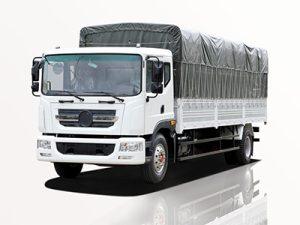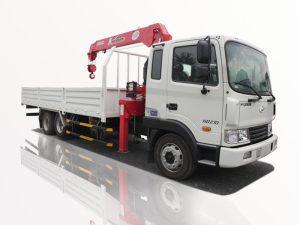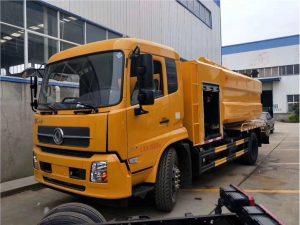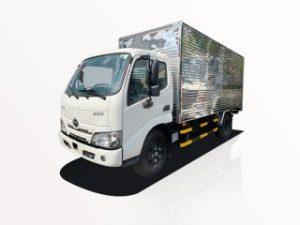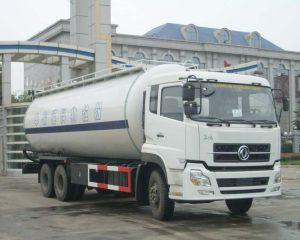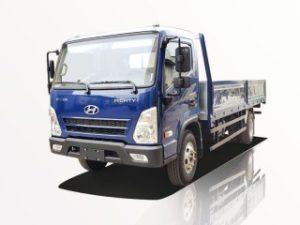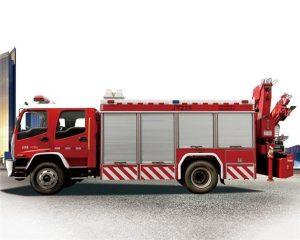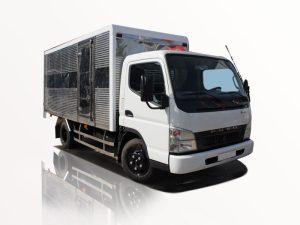Monday to Saturday - 8:00 -17:30
The Ultimate Guide to Trash Garbage Trucks: Everything You Need to Know
Trash garbage trucks are essential vehicles in our daily lives, playing a crucial role in maintaining cleanliness and sanitation in our communities. In this comprehensive guide, we delve into the various aspects of trash garbage trucks, from their types and components to their operating mechanisms and the role they play in waste management. Whether you’re curious about how they work or looking for tips on choosing the right service, this article covers it all.
Understanding Trash Garbage Trucks
What is a Trash Garbage Truck?
A trash garbage truck is a specially designed vehicle for the collection and transportation of solid waste. These trucks are equipped with mechanisms that help in compacting waste to save space and reduce the number of trips required for disposal. They come in various types and sizes, each suited for different waste collection needs.
The Importance of Garbage Trucks
Garbage trucks play a vital role in public health and environmental sustainability. They help prevent the accumulation of waste in urban and suburban areas, reducing the risk of disease and pollution. By efficiently transporting waste to disposal or recycling facilities, these trucks help ensure that communities remain clean and safe.
Types of Trash Garbage Trucks
1. Rear Loader Trucks
Rear loader trucks are one of the most common types of garbage trucks. They have an opening at the back where garbage is loaded. These trucks are typically used for residential waste collection and have a compaction system that helps compress the loaded waste.
2. Front Loader Trucks
Front loader trucks are primarily used for commercial waste collection. They have a hydraulic arm that lifts bins and dumps the waste into the truck from the front. These trucks are larger and designed for high-capacity waste collection.
3. Side Loader Trucks
Side loader trucks collect waste from the side of the vehicle. They are often automated, using mechanical arms to pick up bins. This type of truck is efficient for urban areas with limited space.
4. Roll-off Trucks
Roll-off trucks are specialized vehicles typically used for construction or large-scale clean-ups. They are designed to transport large containers or dumpsters, which can be rolled off the vehicle at the designated site.
5. Vacuum Trucks
Vacuum trucks use suction to collect liquid waste, sludge, or debris. They are commonly used for septic services, industrial cleaning, and municipal maintenance of sewer systems.
Components of a Trash Garbage Truck
1. Chassis
The chassis is the backbone of the garbage truck, providing structural support and housing the engine. It is typically built for heavy-duty use to withstand the weight of the waste being collected.
2. Compaction System
Most trash garbage trucks come equipped with a compaction system that compresses waste to maximize space. This system is crucial for improving efficiency, allowing trucks to carry more waste in a single trip.
3. Lift Mechanism
In trucks with automated systems, lift mechanisms allow the driver or the truck’s control system to raise and empty waste containers into the truck. This feature reduces manual labor and speeds up the collection process.
4. Container or Body
The container, or body, is where the waste is stored during transport. It is designed to be easy to clean and maintain, with features to prevent leaks and odors.
5. Safety Features
Modern garbage trucks are equipped with various safety features such as rearview cameras, reflective warning signs, and built-in sensors to ensure the safety of both operators and pedestrians.
How Trash Garbage Trucks Operate
Waste Collection Process
The waste collection process involves several steps:
- Route Planning: Efficient routes are planned to minimize travel time and fuel consumption.
- Pick-Up: Trucks stop at designated collection points, using hydraulic or automated systems to lift and empty bins.
- Compaction: Waste is compacted in the truck to maximize capacity.
- Transport: Full trucks are driven to waste processing or disposal facilities.
Environmental Considerations
Garbage trucks contribute significantly to waste management. Many municipalities are now adopting eco-friendly practices:
- Alternative Fuels: Some garbage trucks run on compressed natural gas (CNG) or electricity, reducing greenhouse gas emissions.
- Recycling Initiatives: Many operations now separate recyclables at the source, making it easier for trucks to transport them to recycling centers.
Choosing the Best Trash Garbage Truck Service
Factors to Consider
When selecting a trash garbage truck service, consider the following:
- Service Area: Ensure the provider services your neighborhood.
- Types of Waste: Confirm that they can handle the specific type of waste you generate.
- Frequency of Collection: Choose a service that matches your needs for collection intervals.
- Cost: Compare prices and features among different services.
Practical Tips for Waste Disposal
To make the most out of your garbage collection service:
- Separate Recyclables: Separate paper, plastics, and metals to aid recycling efforts.
- Secure Loose Items: Use bags for loose waste to prevent spillage during collection.
- Label Containers: Clearly mark your bins to help collectors identify what goes where.
Common Issues and Solutions with Trash Garbage Trucks
1. Truck Breakdowns
Breakdowns can disrupt collection schedules. Regular maintenance checks can prevent these issues, ensuring the truck remains operational.
2. Missed Collections
Sometimes collections may be missed due to inclement weather or route changes. Contact your service provider for rescheduling and updates.
3. Complaints About Noise
Garbage trucks can create noise, especially early in the morning. Consider discussing a more convenient collection time with your service provider if noise is bothersome.
Innovations in Trash Garbage Trucks
Smart Technologies
Advancements in smart technology are enhancing the efficiency of garbage trucks:
- GPS Tracking: Many companies now use GPS technology to optimize routes and improve service efficiency.
- Automated Systems: Automated sorting systems help in segregating waste more effectively during collection.
Environmental Innovations
Trucks with hybrid or fully electric engines are becoming more popular, significantly reducing carbon footprints. Some manufacturers are also incorporating biodegradable materials in their truck bodies.
Future Trends in Trash Garbage Truck Operations
1. Increased Automation
With advancements in robotics and AI, we may see more automated systems for waste collection, aiming to reduce human labor and increase efficiency.
2. Greater Emphasis on Sustainability
Future garbage trucks are expected to be more eco-friendly, using renewable energy sources and advanced recycling technologies.
3. Integration of Consumer Apps
Apps that allow consumers to track when their trash will be picked up or report problems directly to the service provider are likely to become more common.
FAQs About Trash Garbage Trucks
1. How do garbage trucks prevent odors?
Garbage trucks are designed with sealed containers and compaction systems that help minimize odors from the waste they carry.
2. What should I do if my garbage is not picked up on schedule?
Contact your waste collection service provider for updates. They may reschedule or provide information on missed collections.
3. Can I put hazardous waste in my regular garbage?
No, hazardous waste should be disposed of through special disposal programs offered by local waste management authorities.
4. Are trash garbage trucks bad for the environment?
While they do contribute to emissions, many companies are adopting greener technologies, such as electric trucks, to mitigate their environmental impact.
5. How do I arrange for bulk waste collection?
Most municipalities provide bulk waste collection services on specific days. Check with your local waste management provider for details.
6. What types of waste can be recycled?
Common recyclables include paper, cardboard, glass, metals, and certain plastics. Check your local recycling guidelines for specific items.


